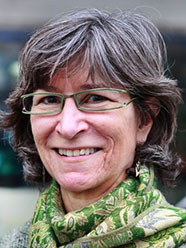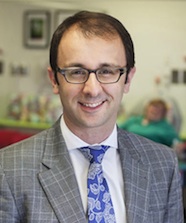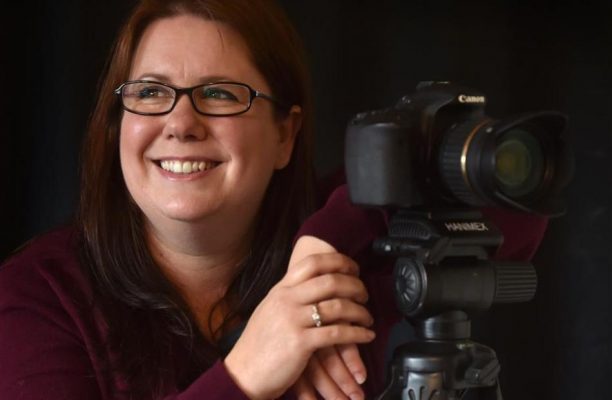Cancer communication outside the box
28 May 2018
Breast cancer is one of the most common cancers affecting women in New Zealand. There’s a great deal of information and support for sufferers. But what if you have breast cancer and you’re in a group not commonly associated with the disease?
That’s the situation Emma Schranz (pictured above) found herself in eight years ago, when she was diagnosed with breast cancer at the age of 32. Her experience started her on a journey into the world of research – and she hopes it may lead to better experiences for other cancer sufferers in the future.
Emma is completing her Masters in Science Communication at Otago University, with a focus on communication aimed at atypical breast cancer sufferers. Her degree has been made possible by a scholarship from the Healthier Lives National Science Challenge and the Cancer Society of New Zealand.
Emma explains the genesis of her project.
“When I was diagnosed and throughout my year-long treatment, I often felt like the youngest person in the room. I’d sit in the waiting room and there’d be lots of knitting patterns and a sea of older people, and nobody my age.”
She describes being given a DVD about chemotherapy which advised to rely on kids and husbands for support, and “ended with an elderly couple walking along the beach at sunset. At the end of that DVD I just burst into tears; I felt so alone. I was single. It made me feel worse, and I didn’t think I could feel any worse!”
The spark was ignited. Emma’s initial research uncovered that most of the communication to breast cancer patients was aimed at post-menopausal women. “I started thinking hang on, what about men, or other people who don’t fit the norm?”
She was ‘flabbergasted’ to discover a dearth of information for atypical patients.
She interviewed oncologists, nurse oncology specialists and cancer co-ordinators. It was opening, she says, “a can of worms. It was mind-blowing; we don’t have any resources for young people with breast cancer. We don’t have anything for men.
“With a bee in my bonnet, I thought: we can do this better. And yes, they’re a minority but they still deserve to be communicated with in an effective way, and we’re not doing that enough”.
The other breast cancer patients
Emma’s research – now being written up as a paper for journal publication – focuses on five key groups of patients who, she says, are not being communicated with effectively. They’re high-risk or vulnerable people (those with addiction or mental health issues); young women; men and Māori, Pasifika and Asian populations.
She also looks at the issues around survivorship; what happens as people recover from cancer treatment.
With a background in filmmaking and as a screenwriter and director, Emma says it felt natural to make something visual as the creative component of her research. So she created three short webisodes aimed at health professionals, and a short documentary, “I’m Still Here”, about the EXPINKT™ gym for cancer survivors at Otago University.

“It was a coming together of a need and a talent”, says Professor Nancy Longnecker, Emma’s supervisor at the Centre for Science Communication.
“The webisodes share that perspective of what it is like when you get communication about something as devastating as breast cancer”, says Professor Longnecker, “and a lot of the information isn’t really targeted at you. I think it will help if people are more aware of the need for information that feels personally relevant. It’s about better inclusivity in the communication”.
The webisodes focus on individual experiences: Emma’s own as a young woman and that of a male sufferer. The third is an interview with oncologist and Cancer Society medical director (and Healthier Lives Principal Investigator) Dr Chris Jackson, talking about the challenges of communicating effectively with cancer patients.
“It’s my hope”, says Emma, “that once the research is out there and the webisodes are viewed by health professionals there’s a double prong effect: the health professionals who are currently working with cancer patients can think about ways to improve the way they communicate with minority groups and secondly that we can start a dialogue on addressing survivorship issues and how we can improve things so that treatment doesn’t end and people are just kind of left to fend for themselves”.
Future positive impacts

Emma’s project is already having a positive impact. She gave a talk at last year’s Science Communicators of New Zealand conference and has been asked to present a seminar at the oncology dept at Dunedin Hospital. It’s a step in the right direction, according to Dr Chris Jackson.
“There’s a range of information and support out there for people who’ve been diagnosed with cancer”, he says. “But it certainly doesn’t meet the needs of everyone, either because of your demographic or for your cultural or personal situation.
“What’s clear and what’s critical is that cancer is devastating for everybody, and the support and the community that you have around you is absolutely vital to emotionally and physically survive that journey. For some people who don’t fit the typical boxes, it can be more lonely and more isolating”.
Combatting that, Emma says, “would be the best possible outcome for me: that people don’t feel that isolation and loneliness and feeling like you don’t fit in to that.
“It’s a weird club to want to fit into”, she laughs, “but inclusion goes a long way to making you feel like you’re not an anomaly.”
*Emma Schranz’s project was made possible by a scholarship from Healthier Lives National Science Challenge and the Cancer Society of New Zealand.
Related Links
- Cancer Society of New Zealand
- Exercise Training Beyond Breast Cancer (EXPINKT™) – University of Otago
- I’m Still Here YouTube 25m 40s


